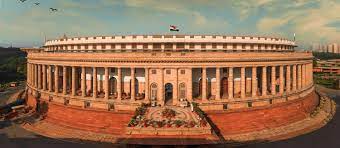LEGISLATION COMMENTARY ON RIGHT OF CHILDREN TO FREE AND COMPULSORY EDUCATION ACT, 2009 (ACT NO. 35 OF 2009)
Author – HRIJIT DAS & Ronita Halder, Student at Department of Law, University of Calcutta
Best Citation – HRIJIT DAS & Ronita Halder, LEGISLATION COMMENTARY ON RIGHT OF CHILDREN TO FREE AND COMPULSORY EDUCATION ACT, 2009 (ACT NO. 35 OF 2009), ILE CONSTITUTIONAL REVIEW, 2 (1) of 2023, Pg. 09-14, ISSN – 2583-7168
ABSTRACT
Education is the building block of society. It is the only way to ascertain all the other rights. A country’s overall development is brought about by skillful human resources which can be achieved through education. The Universal Declaration of Human Rights provides for right to education as a basic human right. The Indian Constitution framers had incorporated under the Article 45 of Directive Principles of State Policy education of Children below the age of six. The subsequent passing of various International Convention by UNESCO emphasized the right to free elementary education of children. India being a developing country with unskilled human resource, realized the importance of free and compulsory elementary education for the children, amended the Constitution and imbued Right to Education under Article 21A of the Constitution as a fundamental right and subsequently passed the Right to Education Act, 2009 which came into force on 1st April, 2010. Before the Act was passed, in 2001, the literacy rate was 64.83% and after it being passed it is 77.70%, in 2021. A significant increase has happened in the literacy rate, most remarkable being the admission of girl child in the schools, with female literacy rate being 70.38%, in 2021 as compared to 54.16%, in 2001. Despite all the positives, quality education plus qualified teachers remains in paper and pen only. Strict enforcement of the act remains in dire straits. Welfare schemes have been enacted to push the literacy rate up the scale so that more numbers of pupil go to school and add up to the nation building process and make India a developed country rather than a developing one.
KEYWORDS : Education, Fundamental Rights, Literacy, Constitution, Nation Building.
